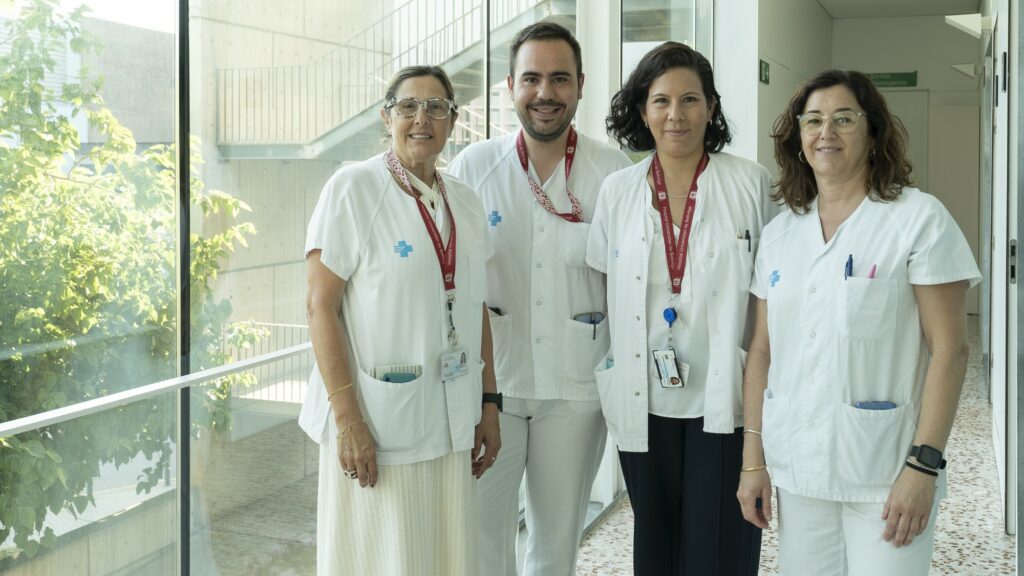As part of a one-year research project led by IDIBELL and Bellvitge University Hospital (HUB), and supported by an unconditional support donation from GlaxoSmithKline (GSK), this July a voice-based artificial intelligence started being used for the monitoring of patients with severe asthma.
This project is one of the work lines of the IDIBELL and the HUB Pneumology research group, focused on highly complex chronic respiratory disease. The project is based on the use of the virtual assistant Lola, developed by the Spanish company Tucuvi. This assistant has begun to be used in recent years in different disease monitoring projects, but this is the first time it is applied in severe asthma in Spain.
The assistant has a human-like voice that automatically calls the patient and talks to them asking questions about their condition, medication compliance, or checking on various parameters. The system converts the patient’s answers into a report that is immediately sent to the Hospital’s professionals through a web application. If the report includes any worrying data, the system issues an alert. The patient questionnaire has been designed by IDIBELL and HUB asthma specialists and counted on the opinion of a group of patients and non-health citizens. The control and review of the information provided by the system is carried out by expert nursing professionals, who are the key reference for telematic communications between patients and the hospital. In this sense, the HUB Nursing Directorate has provided the necessary resources for the program implementation.
The project will include a total of 250 patients with the aim of investigating whether this more intense automated monitoring manages to detect decompensations earlier and improves the evolution of patients. All participants receive prior information about the project and, in principle, the assistant calls them once a month, although this frequency may increase depending on the condition of each patient. To date, almost 100% of automated calls have been answered and answered correctly.
Dr. Mariana Muñoz, principal investigator of the IDIBELL Pneumology research group and coordinator of the HUB Asthma Functional Unit, recalls that a few months ago they were already pioneers in telemedicine with the launch of a mobile application for the disease follow-up. Now, she highlights that this new feature “makes it even easier, since it does not require installing or using any application, just answering a five- or six-minute call”. In addition, in the case of asthma, “we are in a global context of growth of the disease due to the population ageing, the increase in chronicity and problems such as pollution and climate change, which will require all possible solutions”.
The Bellvitge Biomedical Research Institute (IDIBELL) is a biomedical research center created in 2004. It is participated by the Bellvitge University Hospital and the Viladecans Hospital of the Catalan Institute of Health, the Catalan Institute of Oncology, the University of Barcelona and the City Council of L’Hospitalet de Llobregat.
IDIBELL is a member of the Campus of International Excellence of the University of Barcelona HUBc and is part of the CERCA institution of the Generalitat de Catalunya. In 2009 it became one of the first five Spanish research centers accredited as a health research institute by the Carlos III Health Institute. In addition, it is part of the “HR Excellence in Research” program of the European Union and is a member of EATRIS and REGIC. Since 2018, IDIBELL has been an Accredited Center of the AECC Scientific Foundation (FCAECC).

